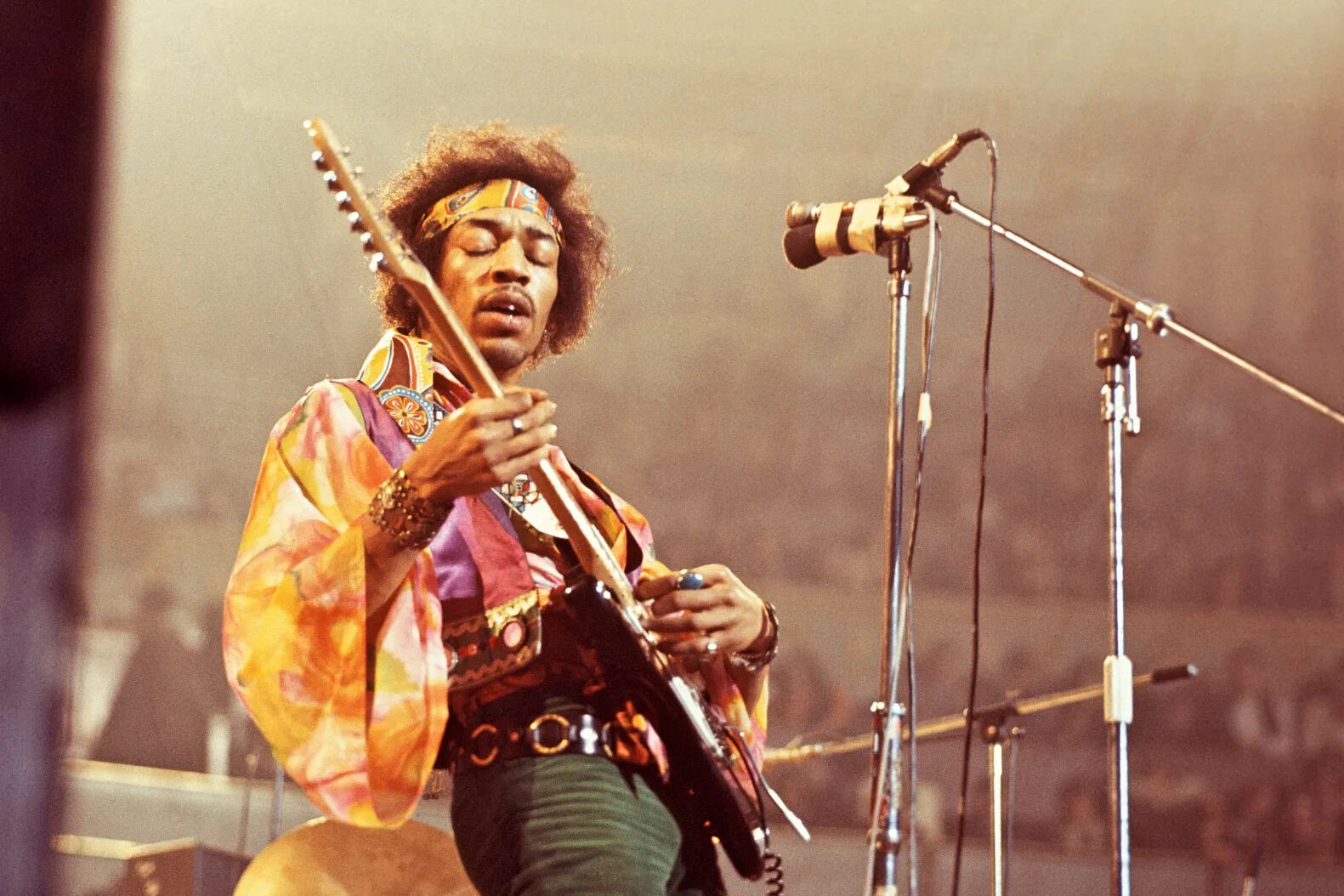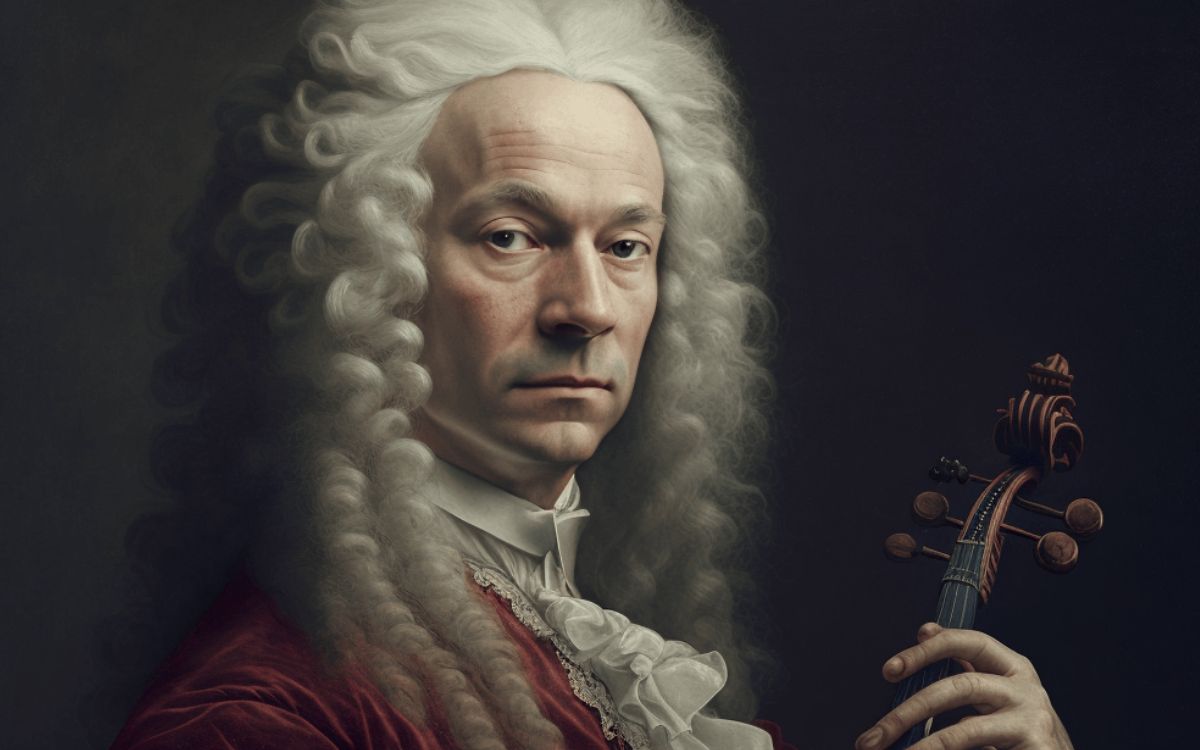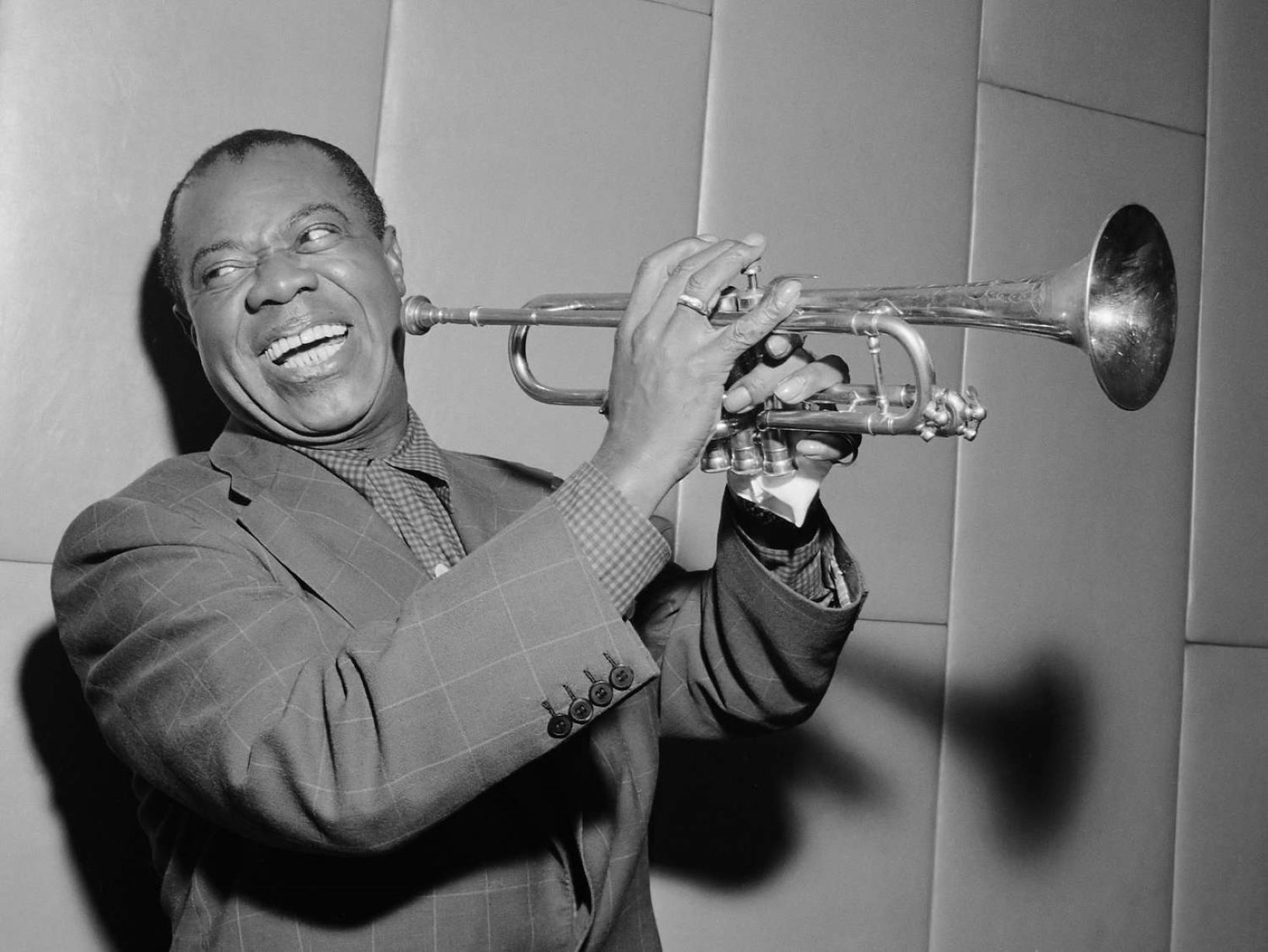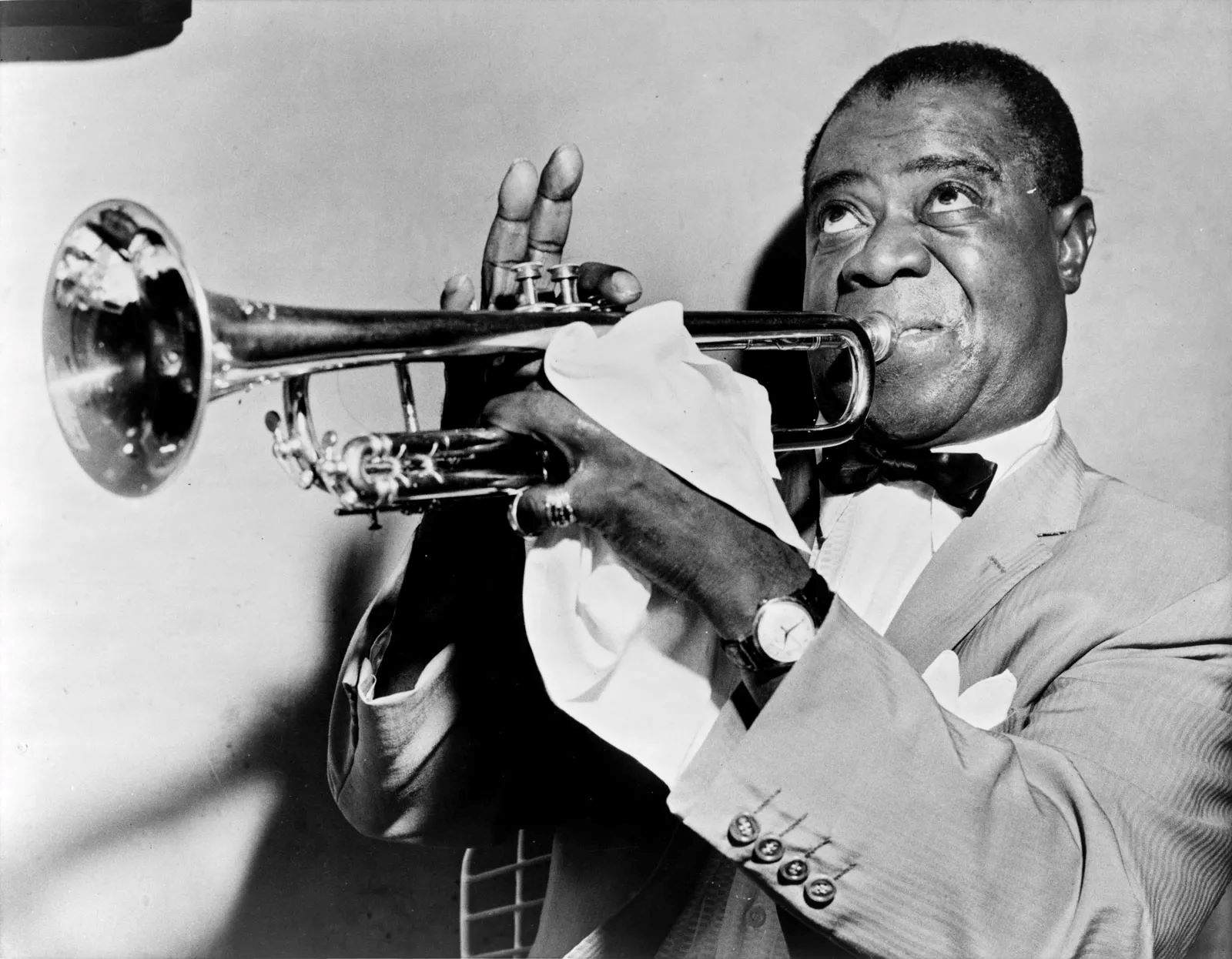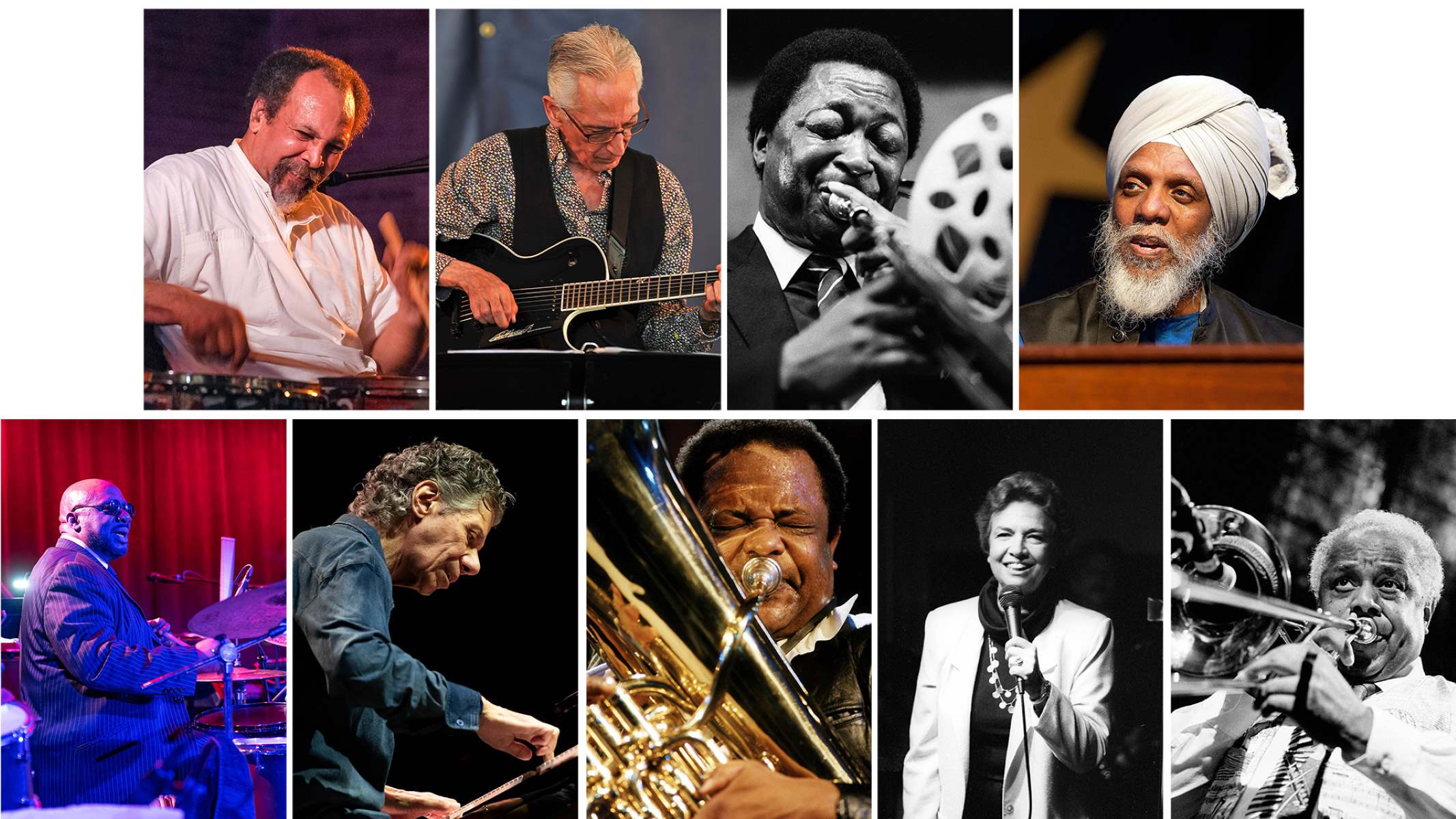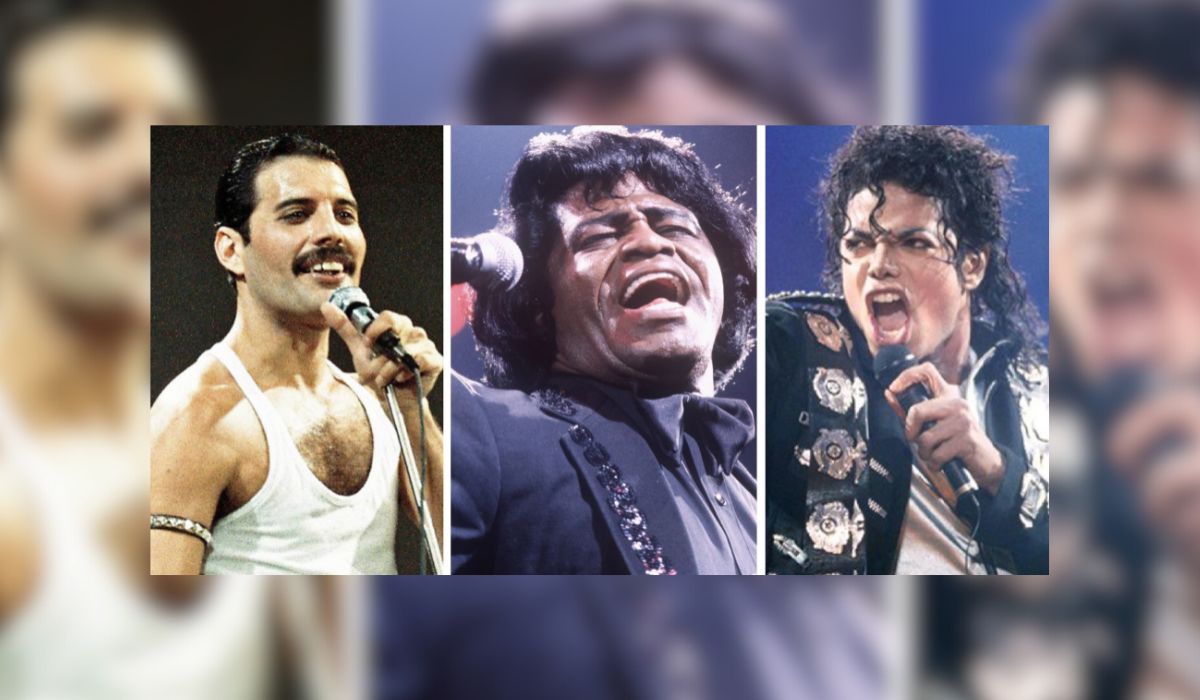Home>Production & Technology>Musician>Who Was The Most Famous Jazz Musician Of All Time
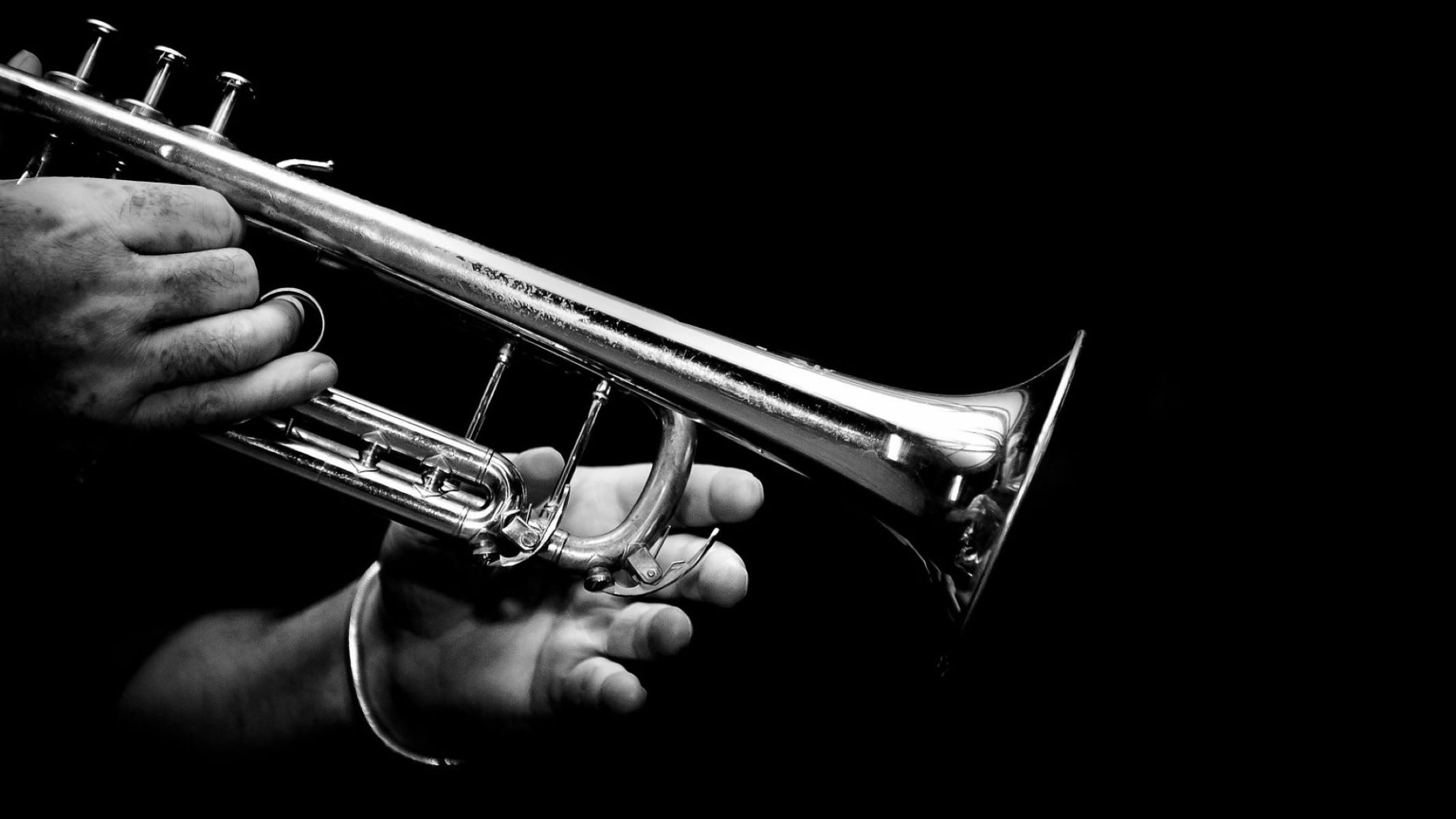

Musician
Who Was The Most Famous Jazz Musician Of All Time
Published: January 28, 2024
Discover the legacy of the world's greatest jazz musician of all time. From his early beginnings to legendary performances, explore the captivating journey of this iconic musician.
(Many of the links in this article redirect to a specific reviewed product. Your purchase of these products through affiliate links helps to generate commission for AudioLover.com, at no extra cost. Learn more)
Table of Contents
Introduction
Jazz music is a genre known for its rich history and diverse range of talented musicians. From the 1920s until today, jazz has captured the hearts of music enthusiasts worldwide with its unique improvisation, complex harmonies, and rhythmic patterns. The contributions of individual musicians have played a pivotal role in shaping the evolution and popularity of jazz.
In this article, we will explore some of the most famous jazz musicians of all time who have left an indelible mark on the genre. These individuals have not only pushed the boundaries of jazz but have also influenced countless musicians and continue to inspire new generations of artists.
From the legendary Louis Armstrong to the innovative Miles Davis, the incomparable Ella Fitzgerald to the virtuosic John Coltrane, each of these musicians has made significant contributions to jazz and has established themselves as icons in the industry. Their unique styles, creativity, and groundbreaking techniques have helped redefine what it means to be a jazz musician.
Through their virtuosity, these musicians have expanded the possibilities of jazz and have contributed to its continued popularity and relevance today. From big bands to small ensembles, from swing to bebop and beyond, their ground-breaking work has helped shape the trajectory of jazz music and has left an indelible mark on the music world as a whole.
Join us as we journey through the lives and careers of the most famous jazz musicians of all time and discover the incredible impact they have had on this truly remarkable genre.
Louis Armstrong
Louis Armstrong, also known as “Satchmo” or “Pops,” is widely regarded as one of the most influential jazz musicians of all time. Born in New Orleans in 1901, Armstrong revolutionized jazz with his distinctive trumpet playing, innovative improvisation, and charismatic stage presence.
Armstrong’s career spanned over five decades, during which he became a prominent figure in both the New Orleans and Chicago jazz scenes. His early recordings with his Hot Five and Hot Seven bands, such as “West End Blues” and “Potato Head Blues,” showcased his impressive technical skills and improvisational brilliance.
But it was Armstrong’s unique vocal style that truly set him apart. His gravelly voice, characterized by his signature scat singing, brought a new level of expressiveness to jazz music. Songs like “What a Wonderful World” and “Hello, Dolly!” became timeless classics, propelling Armstrong to mainstream success and reaching audiences beyond the jazz community.
Armstrong’s influence extended far beyond his music. He broke down racial barriers in a time of segregation, becoming one of the first African American musicians to achieve mainstream success and recognition. His joyful personality and infectious enthusiasm on stage endeared him to audiences around the world, making him a beloved figure in both the jazz and popular music scenes.
Throughout his career, Armstrong collaborated with a vast array of musicians, including Duke Ellington, Ella Fitzgerald, and Billie Holiday. His improvisational skills and ability to blend with other musicians seamlessly set the standard for jazz ensemble playing.
Today, Louis Armstrong’s impact on jazz is undeniable. His virtuosity, innovative playing style, and charismatic stage presence have cemented his status as a jazz legend. He brought a unique blend of technical skill, emotion, and joy to his music, captivating audiences with his performances.
His contributions to the development of jazz and his influence on subsequent generations of musicians cannot be overstated. Louis Armstrong’s legacy lives on, and his music continues to inspire and delight audiences worldwide.
Duke Ellington
Duke Ellington, a pianist, composer, and bandleader, is considered one of the greatest jazz musicians of all time. Born in 1899 in Washington, D.C., Ellington’s career spanned over five decades, during which he composed thousands of pieces, recorded numerous albums, and led his renowned orchestra, the Duke Ellington Orchestra.
Ellington’s music was characterized by his sophisticated compositions, harmonies, and arrangements. He had an uncanny ability to blend different musical styles, seamlessly merging jazz, classical, and popular music elements into a cohesive and innovative sound. Tunes like “Take the ‘A’ Train” and “Mood Indigo” have become jazz standards, showcasing his distinctive style.
As a bandleader, Ellington carefully selected top-notch musicians and encouraged them to express their individual voices within the ensemble. This approach led to the formation of one of the most iconic and influential big bands in jazz history. The Duke Ellington Orchestra’s performances were renowned for their precision, elegance, and swinging rhythms.
Ellington’s contributions to jazz extended beyond his music. He was a pioneer in the fight for civil rights, using his platform to challenge racial injustices. Through his music, he celebrated African American culture and sought to break down racial barriers. His compositions, such as “Black, Brown, and Beige,” brought attention to the struggles and triumphs of the African American experience.
A true musical innovator, Ellington constantly pushed the boundaries of jazz. He experimented with various forms and structures, incorporating extended compositions and suites into his repertoire. With pieces like “Anatomy of a Murder” and “The Far East Suite,” Ellington showcased his ability to create evocative and cinematic soundscapes.
Ellington’s impact on jazz and popular music cannot be overstated. His compositions and arrangements continue to inspire musicians of all genres. His legacy as a composer, pianist, and bandleader is legendary, and he remains an icon in the world of jazz.
Duke Ellington’s extensive body of work, his innovative spirit, and his dedication to pushing the boundaries of jazz make him one of the most esteemed and influential musicians in the history of the genre.
Charlie Parker
Charlie Parker, also known as “Bird,” was an American jazz saxophonist and composer who revolutionized the genre with his virtuosic playing and innovative approach to improvisation. Born in 1920 in Kansas City, Parker’s contributions to jazz are considered groundbreaking and have had a lasting impact on the development of the genre.
Parker’s mastery of the alto saxophone brought a new level of technical proficiency and melodic creativity to jazz. His speed, agility, and harmonic ingenuity set him apart from his contemporaries. His improvisational style, characterized by rapid runs, complex chord substitutions, and rhythmic variations, redefined the possibilities of jazz improvisation.
Charlie Parker played a key role in the development of the new jazz style known as bebop. Alongside musicians such as Dizzy Gillespie and Thelonious Monk, Parker shifted the focus to smaller, more intimate ensembles, where intricate improvisation took center stage. His recordings, such as “Ko-Ko” and “Ornithology,” showcased his innovative and daring approach to jazz.
Despite battling personal demons throughout his life, including a struggle with drug addiction, Parker’s artistic genius remained undeniable. His compositions, such as “Confirmation” and “Billie’s Bounce,” have become jazz standards and continue to be studied and performed by musicians around the world.
Parker’s impact on the jazz community cannot be overstated. His innovation and virtuosity have influenced countless musicians, both in and outside of the jazz genre. His contributions to jazz improvisation and composition continue to inspire and challenge musicians to this day.
Tragically, Charlie Parker’s life was cut short at the age of 34. However, his remarkable musical legacy lives on, and his influence can still be felt in the world of jazz and beyond. Charlie Parker remains an iconic figure in the history of jazz, and his contributions have forever shaped the landscape of the genre.
Miles Davis
Miles Davis, an American jazz trumpeter, composer, and bandleader, is renowned for his musical genius, innovation, and artistic evolution. Born in 1926, Davis had a career that spanned over five decades, during which he continually pushed the boundaries of jazz and reinvented himself time and time again.
Davis initially rose to prominence as part of the bebop movement in the 1940s, playing alongside Charlie Parker and Dizzy Gillespie. However, it was his exploration of modal jazz in the late 1950s and early 1960s that solidified his status as a true innovator. Albums like “Kind of Blue,” with its modal improvisation and ethereal melodies, are considered some of the most influential and best-selling jazz recordings of all time.
Throughout his career, Davis assembled talented and forward-thinking bands that became incubators for young talent. His collaborations with musicians such as John Coltrane, Herbie Hancock, and Wayne Shorter not only pushed the boundaries of jazz but also contributed to the development of new genres such as fusion and jazz-rock.
Davis was also known for his willingness to embrace and incorporate elements from other genres into his music. He fearlessly experimented with electronic instruments, explored the fusion of jazz with rock and funk, and collaborated with artists from various genres, including Gil Evans, Jimi Hendrix, and Prince.
Furthermore, Davis was a master of musical reinvention. He consistently evolved his sound and persona, shedding old styles and embracing new influences. His ability to adapt to the changing musical landscape allowed him to stay relevant and influential throughout his career.
Miles Davis left an indelible mark on jazz and continues to be regarded as one of the greatest musicians of all time. His boldness, innovation, and willingness to take risks have influenced generations of musicians beyond jazz, making him an enduring figure in the music world.
Even after his passing in 1991, Davis’s music remains influential and continues to captivate audiences. His ability to break down musical barriers and his constant pursuit of artistic excellence ensure that his legacy as a true jazz icon will never fade.
John Coltrane
John Coltrane, an American jazz saxophonist and composer, is widely regarded as one of the most influential figures in the history of jazz. Born in 1926, Coltrane’s impact on the genre can be attributed to his innovative improvisation, unique harmonic approach, and spiritual depth.
Coltrane’s early career saw him playing alongside renowned jazz musicians such as Dizzy Gillespie and Miles Davis. However, it was his time with the legendary Miles Davis Quintet and his subsequent solo recordings that solidified his reputation as a musical visionary.
Coltrane’s playing style, characterized by his intense virtuosity and relentless exploration of new musical ideas, captivated audiences and fellow musicians alike. His mastery of extended techniques, such as his signature “sheets of sound” approach, where he played rapid-fire runs of notes, showcased his technical prowess.
But it wasn’t just Coltrane’s technical skill that set him apart; his deep exploration of harmony and spirituality also contributed to his unique sound. Albums like “A Love Supreme” and “Giant Steps” demonstrated his innovative approaches to harmony and his spiritual quest for personal and musical enlightenment.
Coltrane’s musical vision extended beyond the traditional boundaries of jazz. He soaked in influences from various genres, including world music and Indian classical music, and incorporated them into his compositions and improvisations.
Tragically, Coltrane’s life was cut short at the age of 40. However, his musical legacy remains profound. His exploration of sounds, his relentless search for new musical territories, and his commitment to artistic integrity have inspired generations of musicians.
John Coltrane’s influence can be felt across a broad spectrum of genres, from jazz to rock to avant-garde music. His innovative spirit, technical brilliance, and profound spirituality make him one of the most revered and important figures in the history of jazz.
Ella Fitzgerald
Ella Fitzgerald, known as the “First Lady of Song,” was an American jazz vocalist whose stunning voice, impeccable technique, and remarkable versatility made her one of the most celebrated singers in the history of jazz. Born in 1917, Fitzgerald’s contributions to the genre continue to inspire and captivate audiences to this day.
With her smooth, velvety tone, remarkable vocal range, and incredible ability to improvise, Fitzgerald had a natural talent that set her apart. Her recordings of jazz standards, such as “Summertime” and “Mack the Knife,” showcased her unmatched vocal prowess and musicality.
Fitzgerald’s collaboration with jazz pianist and bandleader, Duke Ellington, further elevated her career. Her interpretations of Ellington’s compositions, including “It Don’t Mean a Thing (If It Ain’t Got That Swing)” and “Take the ‘A’ Train,” solidified her as one of the greatest interpreters of jazz standards.
Ella’s improvisational skills were not limited to scat singing. She possessed the ability to transform any song through her effortless phrasing, swinging rhythms, and incredible control over dynamics.
Another defining characteristic of Fitzgerald’s career was her extensive repertoire. She seamlessly transitioned between jazz, swing, bebop, and popular music, demonstrating her adaptability and versatility as an artist. Her iconic series of “Songbook” albums, which paid tribute to the great American songwriters like Cole Porter and George Gershwin, further showcased her mastery of various musical styles.
In addition to her technical brilliance, Ella Fitzgerald had a warm and captivating stage presence that endeared her to audiences around the world. Her infectious smile, charming personality, and genuine love for performing made her performances unforgettable.
Fitzgerald’s impact on the jazz world cannot be overstated. She inspired countless singers with her impeccable vocal technique and paved the way for future generations of female jazz vocalists. Her legacy as one of the greatest jazz singers of all time is unquestionable.
Although Ella Fitzgerald passed away in 1996, her music continues to be celebrated and cherished. Her recordings serve as a testament to her exceptional talent and her ability to convey emotion and connect with listeners on a profound level.
Ella Fitzgerald’s contribution to jazz remains unparalleled, and her influence will continue to resonate for generations to come.
Billie Holiday
Billie Holiday, known as “Lady Day,” was an American jazz singer whose unique vocal style and ability to convey emotional depth made her one of the most iconic and influential figures in the history of jazz. Born in 1915, Holiday’s raw and heartfelt delivery, combined with her rich and soulful voice, continues to captivate audiences to this day.
Holiday’s ability to tell a story through her singing set her apart from other vocalists of her time. With songs like “Strange Fruit” and “God Bless the Child,” she fearlessly tackled themes of racism, poverty, and heartbreak, bringing a sense of truth and vulnerability to her performances.
Her vocal phrasing and distinct sense of timing showcased her musicality and ability to interpret a song like no other. She had an innate ability to infuse each lyric with deep emotion, transporting listeners to the heart of every song.
However, it was not just her singing technique that made her special. It was her ability to emotionally connect with her audience. Holiday lived a turbulent life, and her own experiences of pain and hardship were reflected in her music. Her authenticity and honesty as an artist resonated with listeners on a profound level.
Holiday’s collaboration with renowned jazz musicians, such as Lester Young and Teddy Wilson, further elevated her career. Their synergy created an unmatched musical chemistry that is evident in their recordings together.
Despite facing numerous personal and professional challenges, including battles with substance abuse and racial prejudice, Holiday’s impact on jazz and popular music remains undeniable. She paved the way for future generations of female singers, with her unparalleled ability to emote and connect with an audience.
Billie Holiday’s influence extends far beyond the world of jazz. Her unique vocal style and persuasive storytelling continue to inspire musicians in various genres. Her legacy is reflected in the countless singers who have been touched by her artistry and strive to capture the same emotional resonance in their own performances.
Even after her passing in 1959, Holiday’s recordings stand as a testament to her enduring talent and her ability to transcend time and touch the hearts of listeners. Billie Holiday’s impact on jazz and her status as one of the greatest singers of all time are firmly etched in musical history.
Thelonious Monk
Thelonious Monk, an American jazz pianist and composer, was a true innovator of the genre. Born in 1917, Monk’s unique playing style, unconventional compositions, and eccentric personality set him apart from his contemporaries and established him as an icon in the world of jazz.
Monk’s distinctive piano playing featured angular melodies, dissonant harmonies, and unexpected rhythmic accents. His use of silence and space between notes added to the tension and unpredictability of his performances. Songs like “Round Midnight” and “Blue Monk” showcase not only his dazzling technical ability but also his unparalleled creative expression.
As a composer, Monk’s contributions to jazz are significant. He penned many jazz standards, including “Straight, No Chaser” and “Well, You Needn’t,” which continue to be performed and recorded by musicians today. His compositions were characterized by their intricate structures, unorthodox chord progressions, and distinctive melodies that challenged the conventional norms of jazz.
Monk’s individuality also extended to his stage presence. He was known for his idiosyncratic behavior, including dancing and unique physical movements while playing the piano. Monk’s unapologetic dedication to his artistic vision and refusal to conform to societal expectations made him an enigmatic figure in the jazz world.
Although misunderstood and underappreciated during his lifetime, Monk eventually gained recognition for his contributions to jazz. In 1964, he received the prestigious Grammy Award for Best Jazz Performance by a Soloist for his album “Monk’s Dream,” solidifying his status as a jazz legend.
Thelonious Monk’s impact on the jazz community cannot be overstated. His idiosyncratic approach to music, his unconventional compositions, and his unparalleled pianistic skills have influenced generations of musicians.
Even after his passing in 1982, Monk’s music continues to inspire and challenge musicians. His legacy as a true musical innovator and an uncompromising artist remains intact, and his influence can be heard in the work of countless jazz pianists around the world.
Dizzy Gillespie
Dizzy Gillespie, an American jazz trumpeter, bandleader, and composer, was a towering figure in the world of jazz. Born in 1917, Gillespie’s virtuosic trumpet playing, innovative approach to improvisation, and contributions to the development of Afro-Cuban jazz have left an indelible mark on the genre.
Gillespie’s playing style was characterized by his dazzling technical ability, incredible range, and distinctive bent trumpet bell. His mastery of complex harmonic structures and his use of intricate melodic patterns set him apart from his contemporaries.
In addition to his formidable trumpet skills, Gillespie’s influence extended into the realm of composition and arrangement. Songs like “A Night in Tunisia” and “Salt Peanuts” became iconic jazz standards, showcasing his ability to blend intricate melodies and rhythmic complexity.
Gillespie was also instrumental in the development of Afro-Cuban jazz. His collaboration with Cuban percussionist Chano Pozo resulted in the fusion of jazz and traditional Afro-Cuban rhythms. This genre-bending approach laid the foundation for Latin jazz and brought a new level of excitement and energy to the jazz world.
Furthermore, Gillespie’s contributions went beyond his own music. He was a mentor and advocate for young jazz musicians, including helping to launch the careers of saxophonist John Coltrane and pianist Bud Powell. His passion for education and passing on his knowledge ensured the continued growth of jazz as an art form.
Gillespie’s larger-than-life personality and signature bent trumpet became iconic symbols of jazz. His playful stage presence, infectious energy, and signature puffed-out cheeks endeared him to audiences around the world.
Dizzy Gillespie’s impact on jazz is immeasurable. His virtuosity, innovative playing style, and tireless dedication to pushing the boundaries of the genre have inspired generations of musicians. He remains one of the most influential figures in jazz history.
Even after his passing in 1993, Gillespie’s music continues to be celebrated and studied by musicians. His unique contributions and his commitment to the art form ensure that his legacy will forever be engraved in the history of jazz.
Conclusion
The world of jazz has been shaped by countless talented and influential musicians throughout its history. From the pioneering Louis Armstrong to the innovative Miles Davis, from the soulful Billie Holiday to the enigmatic Thelonious Monk, these musicians have made significant contributions to the genre and have left an enduring legacy.
Each of these iconic figures brought their own unique style and artistic vision to jazz, pushing boundaries and redefining what it means to be a jazz musician. Their virtuosity, creativity, and innovation not only captivated audiences but also inspired future generations of musicians.
Through their music, these jazz legends have impacted the evolution of the genre. They have introduced new techniques, expanded the harmonic and rhythmic possibilities of jazz, and fearlessly explored new territories, be it through modal jazz, bebop, fusion, or the incorporation of different cultural influences.
Moreover, these musicians have not only transcended musical boundaries but also societal ones. They have broken down racial barriers, challenged conventional norms, and became voices for social justice and equality.
Their work continues to resonate with audiences worldwide, captivating new generations of listeners and musicians. The timeless beauty and emotional depth of their music continue to touch hearts and inspire creativity.
In conclusion, the most famous jazz musicians of all time have left an indelible mark on the genre and the world of music as a whole. Their contributions have shaped the trajectory of jazz, influencing subsequent generations of musicians and leaving a lasting legacy that will be celebrated for years to come. Their talent, innovation, and dedication to their craft have ensured that jazz remains a vibrant and influential genre, cherished by audiences around the globe.

